Search
Search results
Paige (277 KP) rated The Outsider in Books
Sep 27, 2020
Character Development (2 more)
Plot Twist
Depth
The Outsider
The Outsider by Stephen King follows Ralph Anderson as he pursues a murder investigation as a Police Detective. To elaborate further, the investigation leads Ralph Anderson to the murder of a young boy, who was also sexually assaulted by the now, unknown murderer. Terry Maitland, a married man and Coach of Youth Sports, is a highly respected member of society, but he is to become suspected of murder owing to irrefutable Forensic Evidence and Witness Statements.
Despite this, Terry Maitland denies this immediately, and has an alibi which is seemingly irrefutable, just as the Forensic Evidence and Witness Statements against him were. His alibi positions him hours away from the where the murder occurred. Terry Maitland was now a man able to be in two places at once.
An absolutely enthralling book by Stephen King which I was unable to put down, and thoroughly enjoyed reading. Admittedly, The Outsider was one of the first Stephen King books that I read; I have since read multiple of his books.
Despite this, Terry Maitland denies this immediately, and has an alibi which is seemingly irrefutable, just as the Forensic Evidence and Witness Statements against him were. His alibi positions him hours away from the where the murder occurred. Terry Maitland was now a man able to be in two places at once.
An absolutely enthralling book by Stephen King which I was unable to put down, and thoroughly enjoyed reading. Admittedly, The Outsider was one of the first Stephen King books that I read; I have since read multiple of his books.
Duncan Jones recommended 12 Monkeys (1995) in Movies (curated)
Jeff Bridges recommended Tideland (2006) in Movies (curated)
David McK (3188 KP) rated Wizard's Brew in Books
Jan 30, 2019
Comic fantasy that reminded me slightly of the great Terry Pratchett (writen in that vein), but not quite as good as his.
Set in an alternative medieval period, in the reign of Uther Pendragon (who is one of the characters in the book): in this case, Uther (and not Arthur) is the 'Once and Future King'. Unfortunately, the book also states that the author is working on a sequel: if he did, I never saw any sign of it in any of the bookshops, with the ending of this book leaving plenty (too much?) open to be included in that sequel.
Set in an alternative medieval period, in the reign of Uther Pendragon (who is one of the characters in the book): in this case, Uther (and not Arthur) is the 'Once and Future King'. Unfortunately, the book also states that the author is working on a sequel: if he did, I never saw any sign of it in any of the bookshops, with the ending of this book leaving plenty (too much?) open to be included in that sequel.
Lyndsey Gollogly (2893 KP) rated Winning the Highlander's Heart (The Highlanders #1) in Books
Aug 30, 2020
156 of 200
Audio!
Winning the Highlander’s Heart ( Highlanders book 1)
By Terry Spear
Countess Anice vows to flee the amorous advances of King Henry I, and return to her home in the Highlands, where she hopes to find a laird to wed. Highlander Laird Malcolm MacNeill, seeking an English bride, becomes entangled with the Scottish lass while trying to find out why her staff has vanished.
I listened to this on audio I’m not really used to audio books so took a while to get Into! But I really enjoyed it what’s not to love Hot Scottish highlanders,drama ,action and romance. Historic fiction is a big love of mine and this didn’t disappoint!
Audio!
Winning the Highlander’s Heart ( Highlanders book 1)
By Terry Spear
Countess Anice vows to flee the amorous advances of King Henry I, and return to her home in the Highlands, where she hopes to find a laird to wed. Highlander Laird Malcolm MacNeill, seeking an English bride, becomes entangled with the Scottish lass while trying to find out why her staff has vanished.
I listened to this on audio I’m not really used to audio books so took a while to get Into! But I really enjoyed it what’s not to love Hot Scottish highlanders,drama ,action and romance. Historic fiction is a big love of mine and this didn’t disappoint!
David McK (3188 KP) rated The Shepherd's Crown in Books
Jan 28, 2019
THE FINAL DISCWORLD BOOK
Those four words were always going to make a long-time Discworld reader feel quite emotional, making it hard to objectively review the novel itself: are you reviewing this last peek into Pratchett's mirror reality, or are you reviewing the entire 41-book series? I'm going to try both:
THE SERIES
The first Disworld book I read (I'm pretty sure it was [b: Pyramids|64217|Pyramids (Discworld, #7)|Terry Pratchett|https://images.gr-assets.com/books/1439098306s/64217.jpg|968512]) wasn't actually the first in the series (that would be [b: The Colour of Magic|833512|The Colour of Magic The Illustrated Screenplay|Vadim Jean|https://images.gr-assets.com/books/1347346368s/833512.jpg|17589693]), although I did later go back and read the earlier works. Reading them in order released (as opposed to one of the numerous Discworld Reading Order Guides: I'm quite partial to the 'Unofficial Discworld Reading Order Guide'), you can see how Terry Pratchett's writing style evolved, how he moved from outright satire to a more subtle comedy fantasy that holds a mirror up to real-world issues. Personally, I feel he was at his best at around the mid-way point of the series (say, [b: Maskerade|64305|Maskerade The Play|Terry Pratchett|https://images.gr-assets.com/books/1170622047s/64305.jpg|62427] or [b: Men at Arms|7557548|Men at Arms The Play|Terry Pratchett|https://images.gr-assets.com/books/1353573652s/7557548.jpg|9910828], after he'd found his feet (so-to-speak), but before the 'embuggerance' of his posterior cortical atrophy set in and the novels - perhaps understandably - started becoming almost too serious.
Throughout the series, there was a rich tapestry of characters introduced, from CMOT Dibbler through to the Patrician of Ankh-Morpork, with certain groups of characters (e.g. The City Watch) effectively becoming a sub-series in their own right. One of those groups - Granny Weatherwax (first introduced in [b: Equal Rites|34507|Equal Rites (Discworld, #3; Witches, #1)|Terry Pratchett|https://images.gr-assets.com/books/1407706800s/34507.jpg|583611] and The Witches of Lancre (first introduced in [b: Wyrd Sisters|233664|Wyrd Sisters The Play|Terry Pratchett|https://images.gr-assets.com/books/1388363090s/233664.jpg|17589683] - would later themselves have 'guest spots' in another group of such characters, ostensibly written for Young Adult Readers but still very enjoyable for older; the Nac Mac Feegles (Crivens!) and Tiffany Aching, both of who first appeared in [b: The Wee Free Men|7881001|The Wee Free Men The Beginning (Discworld, #30 & #32)|Terry Pratchett|https://images.gr-assets.com/books/1388181365s/7881001.jpg|22017239]. Which nicely brings me to:
THE NOVEL ITSELF
'The Shepherd's Crown' sees a return of both Tiffany Aching, now a young Witch setting out on her career path, and those Nac Mac Feegles. There's a strong sense of change throughout, kicked off by the surprising early exit of a previous major character in the entire series, leading to old foes - the Elves - to try to make their way back into the world. These Elves, remember, are *not* the dainty do-gooders of Tolkien: these are nasty, malicious, self-serving creatures who last attempted to invade in [b: Lords and Ladies|34529|Lords and Ladies (Discworld, #14; Witches #4)|Terry Pratchett|https://images.gr-assets.com/books/1469186110s/34529.jpg|1185086], before eventually being defeated by Granny Weatherwax, Nanny Ogg and Magrat Garlik. Those three characters make a return in this, as well as bit-parts for the Arch-Chancellor of Unseen University, Ponder Stibbons (and HEX) alongside King Verence and the Patrician. Despite all these, the novel, however, is really Tiffany's story, and of how she finds her feet in the circumstances into which she is rather abruptly thrown. There's also a plot element that recalls [b: Equal Rites|34507|Equal Rites (Discworld, #3; Witches, #1)|Terry Pratchett|https://images.gr-assets.com/books/1407706800s/34507.jpg|583611]: that of a person wanting to do a role that is generally considered to be that for a member of the opposite sex.
As always, footnotes are present and correct, with the novel even raising a few laugh-out-loud moments. While the story does finish with the words 'THE END', the world itself will continue on: all that has come to an end is our ability to peek into it.
In the words of the Nac Mac Feegle: "Waily waily waily ..."
Rating for the series: 5*
Rating for the novel: 4*
Those four words were always going to make a long-time Discworld reader feel quite emotional, making it hard to objectively review the novel itself: are you reviewing this last peek into Pratchett's mirror reality, or are you reviewing the entire 41-book series? I'm going to try both:
THE SERIES
The first Disworld book I read (I'm pretty sure it was [b: Pyramids|64217|Pyramids (Discworld, #7)|Terry Pratchett|https://images.gr-assets.com/books/1439098306s/64217.jpg|968512]) wasn't actually the first in the series (that would be [b: The Colour of Magic|833512|The Colour of Magic The Illustrated Screenplay|Vadim Jean|https://images.gr-assets.com/books/1347346368s/833512.jpg|17589693]), although I did later go back and read the earlier works. Reading them in order released (as opposed to one of the numerous Discworld Reading Order Guides: I'm quite partial to the 'Unofficial Discworld Reading Order Guide'), you can see how Terry Pratchett's writing style evolved, how he moved from outright satire to a more subtle comedy fantasy that holds a mirror up to real-world issues. Personally, I feel he was at his best at around the mid-way point of the series (say, [b: Maskerade|64305|Maskerade The Play|Terry Pratchett|https://images.gr-assets.com/books/1170622047s/64305.jpg|62427] or [b: Men at Arms|7557548|Men at Arms The Play|Terry Pratchett|https://images.gr-assets.com/books/1353573652s/7557548.jpg|9910828], after he'd found his feet (so-to-speak), but before the 'embuggerance' of his posterior cortical atrophy set in and the novels - perhaps understandably - started becoming almost too serious.
Throughout the series, there was a rich tapestry of characters introduced, from CMOT Dibbler through to the Patrician of Ankh-Morpork, with certain groups of characters (e.g. The City Watch) effectively becoming a sub-series in their own right. One of those groups - Granny Weatherwax (first introduced in [b: Equal Rites|34507|Equal Rites (Discworld, #3; Witches, #1)|Terry Pratchett|https://images.gr-assets.com/books/1407706800s/34507.jpg|583611] and The Witches of Lancre (first introduced in [b: Wyrd Sisters|233664|Wyrd Sisters The Play|Terry Pratchett|https://images.gr-assets.com/books/1388363090s/233664.jpg|17589683] - would later themselves have 'guest spots' in another group of such characters, ostensibly written for Young Adult Readers but still very enjoyable for older; the Nac Mac Feegles (Crivens!) and Tiffany Aching, both of who first appeared in [b: The Wee Free Men|7881001|The Wee Free Men The Beginning (Discworld, #30 & #32)|Terry Pratchett|https://images.gr-assets.com/books/1388181365s/7881001.jpg|22017239]. Which nicely brings me to:
THE NOVEL ITSELF
'The Shepherd's Crown' sees a return of both Tiffany Aching, now a young Witch setting out on her career path, and those Nac Mac Feegles. There's a strong sense of change throughout, kicked off by the surprising early exit of a previous major character in the entire series, leading to old foes - the Elves - to try to make their way back into the world. These Elves, remember, are *not* the dainty do-gooders of Tolkien: these are nasty, malicious, self-serving creatures who last attempted to invade in [b: Lords and Ladies|34529|Lords and Ladies (Discworld, #14; Witches #4)|Terry Pratchett|https://images.gr-assets.com/books/1469186110s/34529.jpg|1185086], before eventually being defeated by Granny Weatherwax, Nanny Ogg and Magrat Garlik. Those three characters make a return in this, as well as bit-parts for the Arch-Chancellor of Unseen University, Ponder Stibbons (and HEX) alongside King Verence and the Patrician. Despite all these, the novel, however, is really Tiffany's story, and of how she finds her feet in the circumstances into which she is rather abruptly thrown. There's also a plot element that recalls [b: Equal Rites|34507|Equal Rites (Discworld, #3; Witches, #1)|Terry Pratchett|https://images.gr-assets.com/books/1407706800s/34507.jpg|583611]: that of a person wanting to do a role that is generally considered to be that for a member of the opposite sex.
As always, footnotes are present and correct, with the novel even raising a few laugh-out-loud moments. While the story does finish with the words 'THE END', the world itself will continue on: all that has come to an end is our ability to peek into it.
In the words of the Nac Mac Feegle: "Waily waily waily ..."
Rating for the series: 5*
Rating for the novel: 4*
David McK (3188 KP) rated Maskerade (Discworld, #18; Witches #5) in Books
Mar 28, 2021 (Updated Aug 19, 2023)
!!!!!
If I was forced to pick, I would have to say that - speaking personally - I think Terry Pratchett was at the height of his powers in the mid-to-late 90s, before the Discworld books started becoming overly serious.
So, around the time of the likes of 'Lords and Ladies, 'Small Gods', and this one, in other words.
(and I've just realised that 2/3rds of those books quoted concern The Witches Nanny Ogg and Granny Weatherwax)
In this one, and following Magrat marriage to King Verence, the Witches find themselves down to a duo instead of a trio, and - since you can't have a coven of two ("When shall we ... two ... meet again ....") - are in need of a replacement (well, so Nanny Ogg thinks).
Said replacement is the first appearance of Agnes Nitt who, unfortunately (from their perspective) has moved to the city of Ankh-Morpork and joined the Opera.
Cue Pratchett's take on 'The Phantom of the Opera' (which, when I first read this, I'd never actually seen) ...
So, around the time of the likes of 'Lords and Ladies, 'Small Gods', and this one, in other words.
(and I've just realised that 2/3rds of those books quoted concern The Witches Nanny Ogg and Granny Weatherwax)
In this one, and following Magrat marriage to King Verence, the Witches find themselves down to a duo instead of a trio, and - since you can't have a coven of two ("When shall we ... two ... meet again ....") - are in need of a replacement (well, so Nanny Ogg thinks).
Said replacement is the first appearance of Agnes Nitt who, unfortunately (from their perspective) has moved to the city of Ankh-Morpork and joined the Opera.
Cue Pratchett's take on 'The Phantom of the Opera' (which, when I first read this, I'd never actually seen) ...
BankofMarquis (1832 KP) rated The Green Knight (2020) in Movies
Aug 6, 2021
Interesting...Intriguing...and Weird
You have 2 choices when choosing to view the Arthurian tale THE GREEN KNIGHT.
1). Brush up on the 14th Century tale (writer unknown) about Sir Gawain (of Knights of the Round Table fame) and The Green Knight
2). Go in “blind” and let the film wash over you.
I did #2 and while I got the “gist” of what was going on, I missed some of the subtleties (or the attempted subtleties) that I now know since I went on-line and brushed up on the story/poem (no, I did not read the 14th century poem - a google search synopsis of plot of the poem was sufficient).
Starring Dev Patel (more on him later) THE GREEN KNIGHT tells the story of a would-be Knight of the Round Table, Gawain, who accepts a challenge of THE GREEN KNIGHT and now must stand up to the consequence of his deeds while heading off on a quest.
Dev Patel (SLUMDOG MILLIONAIRE) has really grown into a fine actor and he is perfectly cast as the courage-challenged Gawain. He walks through this film with a slight look of fear in his eyes and I was finding myself yelling at him (in my head) to “stand up and do what’s right” (which is the point of the film/story) when he would make the wrong decision.
Alicia Vikander (who I have not seen on screen since 2018’s TOMB RAIDER) and Joel Edgerton (LOVING) are 2 of the people that Gawain meets along the way and they bring strength and star power to the middle part of this film - they came along at an opportune time, for this film was beginning to sag under it’s own weight at that point, but these 2 help propel Gawain (and the film) to the climax.
Director David Lowery (A GHOST STORY) has crafted a fantastical film that reminded me very much of the work of Terry Gilliam - and I mean that as a compliment. He heightens every scene with imagery that’s just “off” (again, I mean that as a compliment) that symbolizes the “quest” that Gawain is on.
He also does something that will either encourage or discourage a viewer (and that is the strength and weakness of this film) - he explains nothing.
For example…at the beginning, Gawain is sitting at a round table with a King and Queen and a bunch of other Knights (or would be Knights). One would assume that this is King Arthur, Guinevere and the Knights of the Round Table, but Lowery never calls them by name. “The King” pulls out his sword and hands it to Gawain for his contest with the Green Knight. The crowd reacts with gasps - one would assume that this is the fable sword Excaliber, but it is never stated.
So…knowing these things (and some of the other aspects of the Gawain) story, might further enrich this experience, but Lowery chooses to not spoon feed the audience and since I did not really know the Gawain story, I just sat back and enjoyed the quest, the imagery, the weirdness (and there is some VERY weird moments - I still don’t know what to make of the scene with the Giants) and was rewarded with a film experience that is rare nowadays, one that just unfurls without telescoping what is happening or what is to come.
This film is not for everyone - it does have a rather languid pace to it - but for those of you that can sit in the stillness, marvel at the imagery and revel in the weirdness/unknown, then THE GREEN KNIGHT is, ultimately, a rewarding film experience - one that (now that I know the story) am eager to revisit.
Letter Grade: B
7 Stars (out of 10) and you can take that to the Bank(ofMarquis)
1). Brush up on the 14th Century tale (writer unknown) about Sir Gawain (of Knights of the Round Table fame) and The Green Knight
2). Go in “blind” and let the film wash over you.
I did #2 and while I got the “gist” of what was going on, I missed some of the subtleties (or the attempted subtleties) that I now know since I went on-line and brushed up on the story/poem (no, I did not read the 14th century poem - a google search synopsis of plot of the poem was sufficient).
Starring Dev Patel (more on him later) THE GREEN KNIGHT tells the story of a would-be Knight of the Round Table, Gawain, who accepts a challenge of THE GREEN KNIGHT and now must stand up to the consequence of his deeds while heading off on a quest.
Dev Patel (SLUMDOG MILLIONAIRE) has really grown into a fine actor and he is perfectly cast as the courage-challenged Gawain. He walks through this film with a slight look of fear in his eyes and I was finding myself yelling at him (in my head) to “stand up and do what’s right” (which is the point of the film/story) when he would make the wrong decision.
Alicia Vikander (who I have not seen on screen since 2018’s TOMB RAIDER) and Joel Edgerton (LOVING) are 2 of the people that Gawain meets along the way and they bring strength and star power to the middle part of this film - they came along at an opportune time, for this film was beginning to sag under it’s own weight at that point, but these 2 help propel Gawain (and the film) to the climax.
Director David Lowery (A GHOST STORY) has crafted a fantastical film that reminded me very much of the work of Terry Gilliam - and I mean that as a compliment. He heightens every scene with imagery that’s just “off” (again, I mean that as a compliment) that symbolizes the “quest” that Gawain is on.
He also does something that will either encourage or discourage a viewer (and that is the strength and weakness of this film) - he explains nothing.
For example…at the beginning, Gawain is sitting at a round table with a King and Queen and a bunch of other Knights (or would be Knights). One would assume that this is King Arthur, Guinevere and the Knights of the Round Table, but Lowery never calls them by name. “The King” pulls out his sword and hands it to Gawain for his contest with the Green Knight. The crowd reacts with gasps - one would assume that this is the fable sword Excaliber, but it is never stated.
So…knowing these things (and some of the other aspects of the Gawain) story, might further enrich this experience, but Lowery chooses to not spoon feed the audience and since I did not really know the Gawain story, I just sat back and enjoyed the quest, the imagery, the weirdness (and there is some VERY weird moments - I still don’t know what to make of the scene with the Giants) and was rewarded with a film experience that is rare nowadays, one that just unfurls without telescoping what is happening or what is to come.
This film is not for everyone - it does have a rather languid pace to it - but for those of you that can sit in the stillness, marvel at the imagery and revel in the weirdness/unknown, then THE GREEN KNIGHT is, ultimately, a rewarding film experience - one that (now that I know the story) am eager to revisit.
Letter Grade: B
7 Stars (out of 10) and you can take that to the Bank(ofMarquis)
Mandy and G.D. Burkhead (26 KP) rated The Book of Kings in Books
May 20, 2018
Shelf Life – The Book of Kings Has a Few Gems and a Few Warts
Contains spoilers, click to show
Unlike other short story anthologies I could mention, this one wasn’t mostly horrible. Instead, the stories inside run the gamut from stupid to brilliant and from annoying to nothing special to fun and memorable. A little something for everyone, then.
So since I can’t review it with one blanket sentiment, let’s instead take a quick look at a handful of the 20 all-original stories inside. The following are the tales that most stood out to me during my reading, for better or worse.
“The Kiss” by Alan Dean Foster – A woman walking through a snowy city finds a frog who says he’s a prince, so she kisses him. He turns into a guy and stabs her to death.
Oh boy, we’re not off to a great start here. This story could have been told in a page or so and been an interesting twist on the old tale, but instead the author drew it out over three pages by choosing the absolute most pretentious choice of words for every damn sentence. The guy doesn’t stab the woman, his “knife describes a Gothic arc.” She doesn’t shout or whisper or ask what’s going on, she “expels a querrelous trauma.” It’s not snowing on her face, “trifles of ice as beautiful as they were capricious tickled her exposed cheeks, only to be turned into simulacra of tears as they were instantly metamorphosed by the bundled furnace of her body.”
Yes, really.
The sheer purpleness of this prose might be excused for a deliberately lofty and overwrought tale, but it absolutely does not fit a story about a girl getting shanked by a frog on the street. If the contrast between what’s happening and how it’s presented is supposed to seem absolutely ridiculous, then it’s a success. This reads more like a writing exercise for seeing how unbearably melodramatic you can tell a simple story that the author went ahead and published anyway. I only read it last night as of the time of this particular bit of review, but I still have a headache.
“Divine Right” by Nancy Holder – A king grieving for his recently passed daughter and only heir tries to figure out how to keep his legacy from dying out and eventually decides on a way to choose a successor, sealing his decision by making a pact with God.
I really liked this one, partly for the great characterization of the king via his priorities. He’s not a bastion of righteousness or a tyrannical despot. He might be a pretty decent ruler, or he might not, depending on your priorities and the angle from which you view him. Mostly he’s written to be believable for his position and time period, pride and failings and all.
But what really sealed this story for me was the ironic bent of the plot that I can’t really discuss in any more depth without spoiling it except to say that it definitely fit with the tone and left an appropriate message. So let’s just give it a thumbs up and leave it at that.
“In the Name of the King” by Judith Tarr – If you know the story of Hatshepsut, an Egyptian queen who ruled as Pharaoh, then this is an extra interesting story. It follows both Hatshepsut and her lover in the afterlife and the legacy they’re leaving behind after their deaths, in which they take a surprisingly active interest for dead people.
If you know your history, though, you know where this is going, and it’s very touching as it gets there. It’s also character-centric in a way that makes its dead cast members seem very much alive. This one’s a good contender for my favorite story in the whole anthology.
“Please to See the King” by Debra Doyle and James D. Macdonald – A small glimpse of about one evening each into the lives of two seemingly unrelated, seemingly unimportant men against the backdrop of the battles being fought over a vague and distant rebellion against a vague and distant crown.
To say more would be to spoil the story, which is short, sweet, and interesting. It gives you just enough details, and no more, that you can piece together a much deeper story with room left for speculation about who certain characters really were and what exactly just happened. I’ve spent more time thinking about how the ending may be interpreted than it took me to read it, which is a good sign of nuance done right.
“The Name of a King” by Diana L. Paxson – This’n c’n rightf’ly b’ put in w’ th’ other st’ries I woul’n’t oth’rwise b’ther t’ mention ‘cept fer th’ o’erwrought dialectic style o’ nearly all o’ th’ dialogue, whut c’n git on yer nerves right quick-like whene’er any’ne op’ns their mouths. An’ while I’m ‘ere, th’ settin’ w’s rife wi’ plen’y o’ hints at deeper d’tails whut was ne’er sufficien’ly delved into or whut impact’d th’ actu’l plot much. Felt like part o’ a fant’sy series whut I was ‘spected t’ b’ f’miliar wit’ but wasn’t, an’ whut di’n’t give me ’nuff t’ git f’miliar wit’ just fr’m this st’ry.
Oth’rwise, t’w’sn’t t’ b’d, I s’pose. Bit borin’.
“Coda: Working Stiff” by Mike Resnick and Nicholas A. DiChario – This one was just fun. Again trying not to give away any twists or revelations, this one follows a journalist interviewing a bus driver who used to be a big, famous king back in his heyday but is now content (or so he says) with his obscure life of working a simple job in the day and drinking in his spartan home at night.
Who this ex-king really is probably isn’t who you think it’s gonna be at first, but the story does still technically, and cheekily, fit in with the premise of the book overall. It reminds me very much of something Neil Gaiman might have written, or maybe Terry Pratchett if he’d decided to tackle the kingly premise from a more modern and realistic approach.
There are still 14 stories left in here, many of which are also good reads, or at least decent. In fact, looking back through it again, the only real dud that stands out to me is “The Kiss.” The weakest of what’s left are either adaptations of stories that didn’t really do it for me (“The Tale of Lady Ashburn” by John Gregory Betancourt) or weird original works that weren’t really memorable in what they set out to do (“A Parker House Roll” by Dean Wesley Smith).
Overall, The Book of Kings is a fun and interesting romp through a number of royal worlds, themes, and tones. As such, anyone who gives it a look will probably have the same general sentiment I did at the end, with a few things to like and a few to point to as examples of what doesn’t work for them. Me, I got a bit of the inspiration I was looking for and a few memorable tales out of it, so I’ll forgive the warts.
So since I can’t review it with one blanket sentiment, let’s instead take a quick look at a handful of the 20 all-original stories inside. The following are the tales that most stood out to me during my reading, for better or worse.
“The Kiss” by Alan Dean Foster – A woman walking through a snowy city finds a frog who says he’s a prince, so she kisses him. He turns into a guy and stabs her to death.
Oh boy, we’re not off to a great start here. This story could have been told in a page or so and been an interesting twist on the old tale, but instead the author drew it out over three pages by choosing the absolute most pretentious choice of words for every damn sentence. The guy doesn’t stab the woman, his “knife describes a Gothic arc.” She doesn’t shout or whisper or ask what’s going on, she “expels a querrelous trauma.” It’s not snowing on her face, “trifles of ice as beautiful as they were capricious tickled her exposed cheeks, only to be turned into simulacra of tears as they were instantly metamorphosed by the bundled furnace of her body.”
Yes, really.
The sheer purpleness of this prose might be excused for a deliberately lofty and overwrought tale, but it absolutely does not fit a story about a girl getting shanked by a frog on the street. If the contrast between what’s happening and how it’s presented is supposed to seem absolutely ridiculous, then it’s a success. This reads more like a writing exercise for seeing how unbearably melodramatic you can tell a simple story that the author went ahead and published anyway. I only read it last night as of the time of this particular bit of review, but I still have a headache.
“Divine Right” by Nancy Holder – A king grieving for his recently passed daughter and only heir tries to figure out how to keep his legacy from dying out and eventually decides on a way to choose a successor, sealing his decision by making a pact with God.
I really liked this one, partly for the great characterization of the king via his priorities. He’s not a bastion of righteousness or a tyrannical despot. He might be a pretty decent ruler, or he might not, depending on your priorities and the angle from which you view him. Mostly he’s written to be believable for his position and time period, pride and failings and all.
But what really sealed this story for me was the ironic bent of the plot that I can’t really discuss in any more depth without spoiling it except to say that it definitely fit with the tone and left an appropriate message. So let’s just give it a thumbs up and leave it at that.
“In the Name of the King” by Judith Tarr – If you know the story of Hatshepsut, an Egyptian queen who ruled as Pharaoh, then this is an extra interesting story. It follows both Hatshepsut and her lover in the afterlife and the legacy they’re leaving behind after their deaths, in which they take a surprisingly active interest for dead people.
If you know your history, though, you know where this is going, and it’s very touching as it gets there. It’s also character-centric in a way that makes its dead cast members seem very much alive. This one’s a good contender for my favorite story in the whole anthology.
“Please to See the King” by Debra Doyle and James D. Macdonald – A small glimpse of about one evening each into the lives of two seemingly unrelated, seemingly unimportant men against the backdrop of the battles being fought over a vague and distant rebellion against a vague and distant crown.
To say more would be to spoil the story, which is short, sweet, and interesting. It gives you just enough details, and no more, that you can piece together a much deeper story with room left for speculation about who certain characters really were and what exactly just happened. I’ve spent more time thinking about how the ending may be interpreted than it took me to read it, which is a good sign of nuance done right.
“The Name of a King” by Diana L. Paxson – This’n c’n rightf’ly b’ put in w’ th’ other st’ries I woul’n’t oth’rwise b’ther t’ mention ‘cept fer th’ o’erwrought dialectic style o’ nearly all o’ th’ dialogue, whut c’n git on yer nerves right quick-like whene’er any’ne op’ns their mouths. An’ while I’m ‘ere, th’ settin’ w’s rife wi’ plen’y o’ hints at deeper d’tails whut was ne’er sufficien’ly delved into or whut impact’d th’ actu’l plot much. Felt like part o’ a fant’sy series whut I was ‘spected t’ b’ f’miliar wit’ but wasn’t, an’ whut di’n’t give me ’nuff t’ git f’miliar wit’ just fr’m this st’ry.
Oth’rwise, t’w’sn’t t’ b’d, I s’pose. Bit borin’.
“Coda: Working Stiff” by Mike Resnick and Nicholas A. DiChario – This one was just fun. Again trying not to give away any twists or revelations, this one follows a journalist interviewing a bus driver who used to be a big, famous king back in his heyday but is now content (or so he says) with his obscure life of working a simple job in the day and drinking in his spartan home at night.
Who this ex-king really is probably isn’t who you think it’s gonna be at first, but the story does still technically, and cheekily, fit in with the premise of the book overall. It reminds me very much of something Neil Gaiman might have written, or maybe Terry Pratchett if he’d decided to tackle the kingly premise from a more modern and realistic approach.
There are still 14 stories left in here, many of which are also good reads, or at least decent. In fact, looking back through it again, the only real dud that stands out to me is “The Kiss.” The weakest of what’s left are either adaptations of stories that didn’t really do it for me (“The Tale of Lady Ashburn” by John Gregory Betancourt) or weird original works that weren’t really memorable in what they set out to do (“A Parker House Roll” by Dean Wesley Smith).
Overall, The Book of Kings is a fun and interesting romp through a number of royal worlds, themes, and tones. As such, anyone who gives it a look will probably have the same general sentiment I did at the end, with a few things to like and a few to point to as examples of what doesn’t work for them. Me, I got a bit of the inspiration I was looking for and a few memorable tales out of it, so I’ll forgive the warts.
TheDefunctDiva (304 KP) rated The Outsider in Books
Oct 7, 2018
From the Inside, Out
Contains spoilers, click to show
This book opens like an episode of “Law and Order: SVU” not suitable for primetime.
A gruesome crime, involving a child (and complete with elements of cannibalism) is committed. The alleged murderer, damned by seemingly undeniable forensic proof, is then very publicly apprehended. And then the twists and turns begin. Though eyewitnesses also put beloved schoolteacher Terry Maitland at the scene of the horrific crime, the accused was actually at a conference in another city, where he was seen on camera no less. Then comes a series of events that threatens not only the man’s quality of life but his very existence.
The novel then expands into a whodunnit with a notably creepy character, a morphing being known as the Outsider. As the true perpetrator of this and other crimes against children and their families, he is at once very human and very otherworldly.
This novel is set in the southwest, which is an unusual departure for Stephen King. Therefore, the descriptions of places were perhaps a bit less detailed and authentic than I would have liked. But having lived in San Antonio, I can say he did a pretty good job and the scenery offered certainly didn’t detract from the story.
In some respects, the monster in the Outsider echoed back to Kafka’s The Metamorphosis. The descriptions of the constantly morphing Outsider character had an eerie element. In the end, the flesh of the outsider consisted of nightmarish worms. And there was a particularly nasty substance he used to morph into his intended victims, some unidentifiable black substance which seems the stuff nightmares are made of. Appropriate, since he went around “eating sorrow” like some unhinged emo kid. Leaving entire families in his wake with his vile need to satiate himself. In his default shape, he resembled a man with “straws for eyes” which is haunting, but not nearly as terrifying as some of King’s other humanoid villains.
This book had several scenes that are now ingrained in my memory. The scene that stole the show for me was when bereaved Arlene Peterson, the victim’s mother, pours funeral leftovers on her head before ultimately succumbing to a heart attack. But the arraignment scene was definitely one that offered more action and intrigue than previously seen in the book. Chaos is one of the things King does best, and this section was remarkable. The book up to this point dragged a little, but the arraignment reigns as a pivotal point that brings many horrors sharply into focus.
I especially enjoyed the murder mystery elements of the book, as I am a sucker for a good detective story. Holly, an investigator who worked with lead detective Ralph Anderson, was my favorite character. Throughout the novel, she is depicted as smart, shrewd, and socially inept. She is also a tad obsessive-compulsive, which I related to on a personal level.
Throughout, the book seems to focus on the dual nature of man, especially in the concluding scene. It seems every man in his lifetime, by choice or fate, wears more than one face. The Outsider was a quality thriller and mystery. It is at once mysterious and devastating, and a testament to the tenacity of the human spirit.
A gruesome crime, involving a child (and complete with elements of cannibalism) is committed. The alleged murderer, damned by seemingly undeniable forensic proof, is then very publicly apprehended. And then the twists and turns begin. Though eyewitnesses also put beloved schoolteacher Terry Maitland at the scene of the horrific crime, the accused was actually at a conference in another city, where he was seen on camera no less. Then comes a series of events that threatens not only the man’s quality of life but his very existence.
The novel then expands into a whodunnit with a notably creepy character, a morphing being known as the Outsider. As the true perpetrator of this and other crimes against children and their families, he is at once very human and very otherworldly.
This novel is set in the southwest, which is an unusual departure for Stephen King. Therefore, the descriptions of places were perhaps a bit less detailed and authentic than I would have liked. But having lived in San Antonio, I can say he did a pretty good job and the scenery offered certainly didn’t detract from the story.
In some respects, the monster in the Outsider echoed back to Kafka’s The Metamorphosis. The descriptions of the constantly morphing Outsider character had an eerie element. In the end, the flesh of the outsider consisted of nightmarish worms. And there was a particularly nasty substance he used to morph into his intended victims, some unidentifiable black substance which seems the stuff nightmares are made of. Appropriate, since he went around “eating sorrow” like some unhinged emo kid. Leaving entire families in his wake with his vile need to satiate himself. In his default shape, he resembled a man with “straws for eyes” which is haunting, but not nearly as terrifying as some of King’s other humanoid villains.
This book had several scenes that are now ingrained in my memory. The scene that stole the show for me was when bereaved Arlene Peterson, the victim’s mother, pours funeral leftovers on her head before ultimately succumbing to a heart attack. But the arraignment scene was definitely one that offered more action and intrigue than previously seen in the book. Chaos is one of the things King does best, and this section was remarkable. The book up to this point dragged a little, but the arraignment reigns as a pivotal point that brings many horrors sharply into focus.
I especially enjoyed the murder mystery elements of the book, as I am a sucker for a good detective story. Holly, an investigator who worked with lead detective Ralph Anderson, was my favorite character. Throughout the novel, she is depicted as smart, shrewd, and socially inept. She is also a tad obsessive-compulsive, which I related to on a personal level.
Throughout, the book seems to focus on the dual nature of man, especially in the concluding scene. It seems every man in his lifetime, by choice or fate, wears more than one face. The Outsider was a quality thriller and mystery. It is at once mysterious and devastating, and a testament to the tenacity of the human spirit.
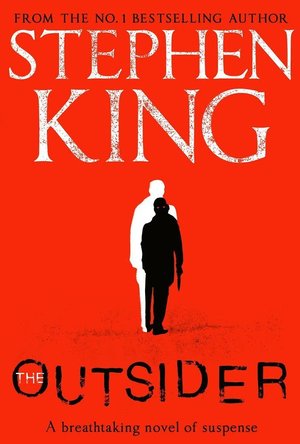

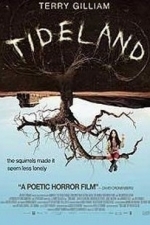

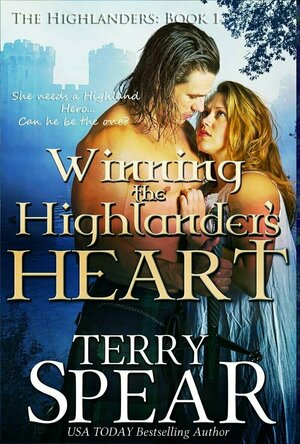
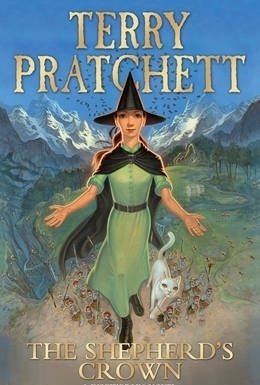
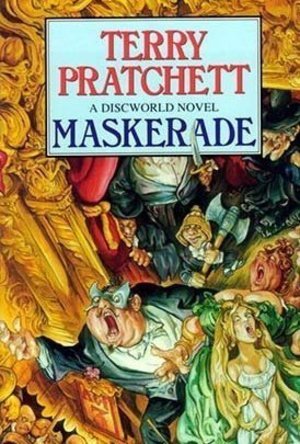
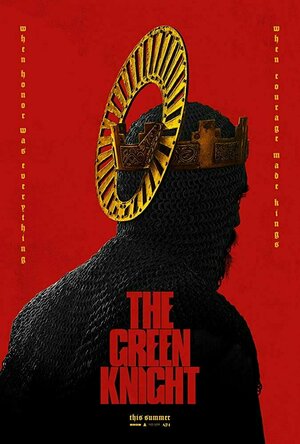
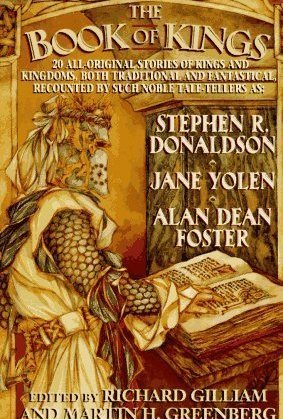
AJaneClark (3962 KP) Sep 27, 2020
Paige (277 KP) Sep 27, 2020